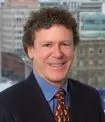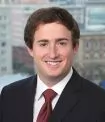On June 17, 2014, Senators, staff, and the public were off to see Dr. Oz testify in Washington, and in the eyes of some Senators, this Oz may encourage as many deceptive tricks as his movie counterpart. Senator Claire McCaskill, Chairman of the Senate Commerce, Science, and Transportation Subcommittee on Consumer Protection, Product Safety, and Insurance, opened a hearing titled "Protecting Consumers from False and Deceptive Advertising of Weight Loss Products" with an attack on false weight loss advertisements, stating: "We've all heard and seen the ads, promising quick and substantial weight loss if only you take this pill, drink this shake, use this device, or apply this cream, all without adjusting diet or increasing physical activity. It seems too good to be true—and of course it is."
The hearing brought together individuals from the private sector and the government to discuss the marketing of deceptive weight loss products, their effect on consumers, and what actions can be taken to better protect consumers. Among those testifying were representatives from the FTC, the Advertising Self-Regulatory Body, the Council for Responsible Nutrition, TrustInAds.org, the Natural Products Association, and of course, the star host of the Dr. Oz Show, Dr. Mehmet Oz.
Much of the press attention immediately following the hearing focused on Dr. Oz' alleged role in promoting weight loss products and clearly he drew more than his share of attention from the Senators, with Senator McCaskill admonishing him that "with power comes great responsibility." But there were other highlights as well. We summarize below what we thought was most pertinent and of interest.
FTC Associate Director Mary Engle noted that the biggest hurdle to stopping misleading weight loss ads is the time needed to investigate the claims, including scrutiny of studies and hiring of experts; (for more on the FTC's recent efforts to combat misleading weight loss claims, click here.)
- In response to a question from the Committee about holding networks more accountable, Ms. Engle said that although the FTC has the authority to pursue networks who disseminate misleading weight loss advertisements, there are significant first amendment issues when it comes to the media and outreach and cooperation may be a more helpful solution;
- Dr. Oz recommended creating a registry identifying which celebrity endorsed products they can trust and said he would create his own list of what he thought were effective brands;
- Dr. Oz also recommended some type of program to encourage whistleblowers to come forward with regard to weight loss products;
- Steven Mister, the CEO of the Council for Responsible Nutrition called FTC and FDA to devote more resources to this area;
- In response to criticism about the use of language such as "weight loss magic cure" and "miracles" Dr. Oz defended such terms as a way of giving his audience hope (perhaps if he was an advertising lawyer he would have said he was "puffing." throughout the hearing). Dr. Oz seemed to draw the most attention from the Subcommittee, with members emphasizing that persons in positions of influence have a responsibility to use their power to protect public health. The members scolded Oz for praising Green Coffee Beans as a "weight loss magic cure," and other dietary supplements as "miracles." Despite Dr. Oz defending his "flowery language" as a way of giving his audience hope, McCaskill was skeptical of Oz's methods, questioning his perpetuation—"intentional or not"—of these false claims. The "Dr. Oz effect" is known to skyrocket sales when products are mentioned on his show, but "with power comes great responsibility," McCaskill said, arguing that media outlets, such as TV programs and satellite radio, need to increase screening of false advertisements.
- Robert Haralson IV, executive director of TrustinAds.org, testified as to how TrustinAds' internet industry members are collaboratively working to screen out false advertising on the internet, including potentially suspending the advertiser's account.
It remains to be seen whether the hearing will have accomplished anything more than generating a few headlines. What is clear, however, is that anyone desiring to tackle the issue of misleading weight loss claims requires courage, a heart and a brain.
* Thai Nguyen is a Venable summer associate and not admitted to practice law.
The content of this article is intended to provide a general guide to the subject matter. Specialist advice should be sought about your specific circumstances.





